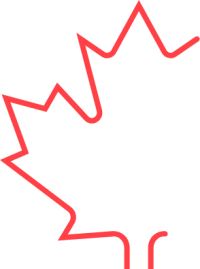
An Edge in the Network is seeking a solution to automate and expedite their InfoSanté (8-1-1) telephone consultation service, empowering their administrative agents to make informed recommendations for patients and reducing some of the administrative burden on healthcare providers and nursing staff, and better the overall patient care experience from this service.
The Edge is posting this Call for Innovation to seek out qualified Canadian companies who can meet the desired outcomes. The Edge and CAN Health reserve the right to not move forward with this project at its full discretion and in particular if there are no qualified Canadian companies that can reasonably meet the desired outcomes.
To qualify for a CAN Health project, the company must have its headquarter in Canada and/or the majority (>50%) of the company owned by Canadians and/or significant economic impact to Canada including a high Canadian job creation potential, >70% of contract value to Canada (for distributors of a non-Canadian solution), independent autonomy over business operations and product development (for subsidiaries, affiliates or distributors), current presence (office(s) and client(s)) and can benefit from the CAN Health Network. Priority will be given to companies that meet all eligibility criteria.
For more information on the Call for Innovation process and the commercialization projects funded by CAN Health Network, please refer to the FAQ page on the CAN Health Network website: https://canhealthnetwork.ca/faq/
Problem Statement: InfoSanté (8-1-1) telephone consultation service currently receives roughly 2 million calls per year, and with a large proportion of these calls being left unanswered and long wait times increasing during peak periods, nursing staff shortages and an approaching flu season pose a challenge.
Objectives: To optimize and expedite the 8-1-1 call-triaging process, alleviating administrative burden on healthcare providers, empowering administrative agents to make informed recommendations and ensuring no patient calls are left unanswered.
Essential (mandatory) outcomes
The proposed solution must achieve:
- Participation rate of 100% by CCI admin agents (<2 weeks after deployment)
- 40% reduction in adult patients calling 8-1-1 for respiratory symptoms who must be assessed by an 8-1-1 nurse (<4 weeks after deployment)
- Average orientation time of < 3 minutes (<4 weeks after deployment)
- A rate of professional reorientation carried out by a doctor/pharmacist of < 1%
The maximum duration for a project resulting from this Challenge is: 8 months
The InfoSanté (8-1-1) telephone consultation service currently receives roughly 2 million calls per year, and with a large proportion of these calls being left unanswered and long wait times increasing during peak periods, nursing staff shortages and an approaching flu season pose a challenge.
Optimizing the process for triaging calls to the 8-1-1 non-urgent health consulting service would address the number of calls typically missed per year, and ensure that patients are directed to the appropriate professional.
Technology would help with freeing up certain health professionals from administrative tasks (i.e. scheduling appointments) so they can provide direct patient care and/or consultations. In replacement, empowering administrative agents with appropriate technology to make informed recommendations for next steps in the patients’ healthcare journey would optimize the current triaging process, reduce waiting time and dropout rate, and improve the overall patient experience.

